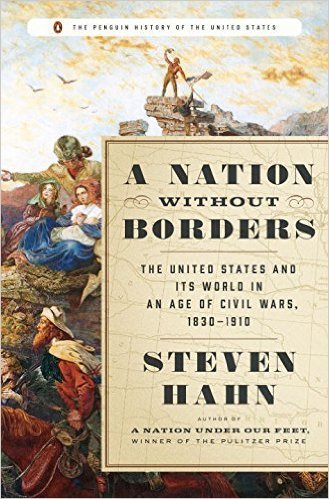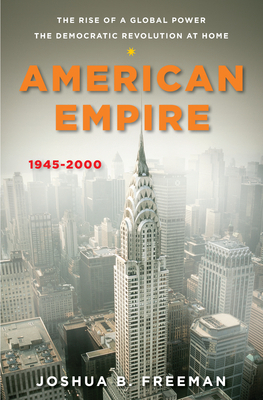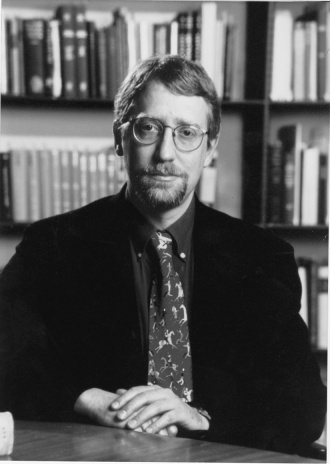


The Penguin History of the United States
Series · 3 books · 2001-2016
Books in series

#1
American Colonies
The Settling of North America
2001
AMERICAN COLONIES starts with the earliest years of human colonization of the American continent and environs with the Siberian migrations across the Bering Strait 15,000 years ago. It ends in around 1800 when the rough outline of the contemporary North America could be perceived.
Dropping the usual Anglocentric description of North America's fate, Taylor brilliantly conveys the far more vivid and startling story of the competing interests—Spanish, French, English, Native, Russian—that over the centuries shaped and reshaped both the continent and its 'suburbs' in the Caribbean and the Pacific. It is one of the greatest of all human stories.

#3
A Nation Without Borders
The United States and Its World in an Age of Civil Wars, 1830-1910
2016
A Pulitzer Prize–winning historian’s provocative reinterpretation of the eight decades surrounding the Civil War (and leading into the twentieth century); the next volume in the Penguin History of the United States, edited by Eric Foner
In this monumental story of American imperial conquest and capitalist development, Pulitzer Prize–winning historian Steven Hahn dismantles the conventional histories of the nineteenth century and offers a perspective that promises to be as enduring as it is controversial. It begins and ends in Mexico and, throughout, is internationalist in orientation. It challenges the political narrative of “sectionalism,” emphasizing the national footing of slavery and the struggle between the northeast and Mississippi Valley for continental supremacy. It places the Civil War in the context of many domestic rebellions against state authority, including those of Native Americans. It fully incorporates the trans-Mississippi west, suggesting the importance of the Pacific to the imperial vision of political leaders and of the west as a proving ground for later imperial projects overseas. It reconfigures the history of capitalism, insisting on the centrality of state formation and slave emancipation to its consolidation. And it identifies a sweeping era of “reconstructions” in the late-nineteenth and early twentieth centuries that simultaneously laid the foundations for corporate liberalism and social democracy.
The era from 1830 to 1910 witnessed massive transformations in how people lived, worked, thought about themselves, and struggled to thrive. It also witnessed the birth of economic and political institutions that still shape our world. From an agricultural society with a weak central government, the United States became an urban and industrial society in which government assumed a greater and greater role in the framing of social and economic life. As the book ends, the United States, now a global economic and political power, encounters massive warfare between imperial powers in Europe and a massive revolution on its southern border―the remarkable Mexican Revolution―which together brought the nineteenth century to a close while marking the important themes of the twentieth.

#5
American Empire
The Rise of a Global Power, the Democratic Revolution at Home 1945-2000
2012
A compelling look at the movements and developments that propelled America to world dominance
In this landmark work, acclaimed historian Joshua Freeman has created an epic portrait of a nation both galvanized by change and driven by conflict. Beginning in 1945, the economic juggernaut awakened by World War II transformed a country once defined by its regional character into a uniform and cohesive power and set the stage for the United States’ rise to global dominance. Meanwhile, Freeman locates the profound tragedy that has shaped the path of American civic life, unfolding how the civil rights and labor movements worked for decades to enlarge the rights of millions of Americans, only to watch power ultimately slip from individual citizens to private corporations. Moving through McCarthyism and Vietnam, from the Great Society to Morning in America, Joshua Freeman’s sweeping story of a nation’s rise reveals forces at play that will continue to affect the future role of American influence and might in the greater world.
Authors
Steven Hahn
Author · 5 books
Steven Hahn is the Roy F. and Jeannette P. Nichols Professor in American History at the University of Pennsylvania.

Alan Taylor
Author · 17 books
Alan Shaw Taylor is a historian specializing in early American history. He is the author of a number of books about colonial America, the American Revolution, and the Early American Republic. He has won a Pulitzer Prize and the Bancroft Prize for his work. Taylor graduated from Colby College, in Waterville, Maine, in 1977 and earned his Ph.D. from Brandeis University in 1986. Currently a professor of history at the University of California, Davis, he will join the faculty of the Corcoran Department of History at the University of Virginia in 2014.